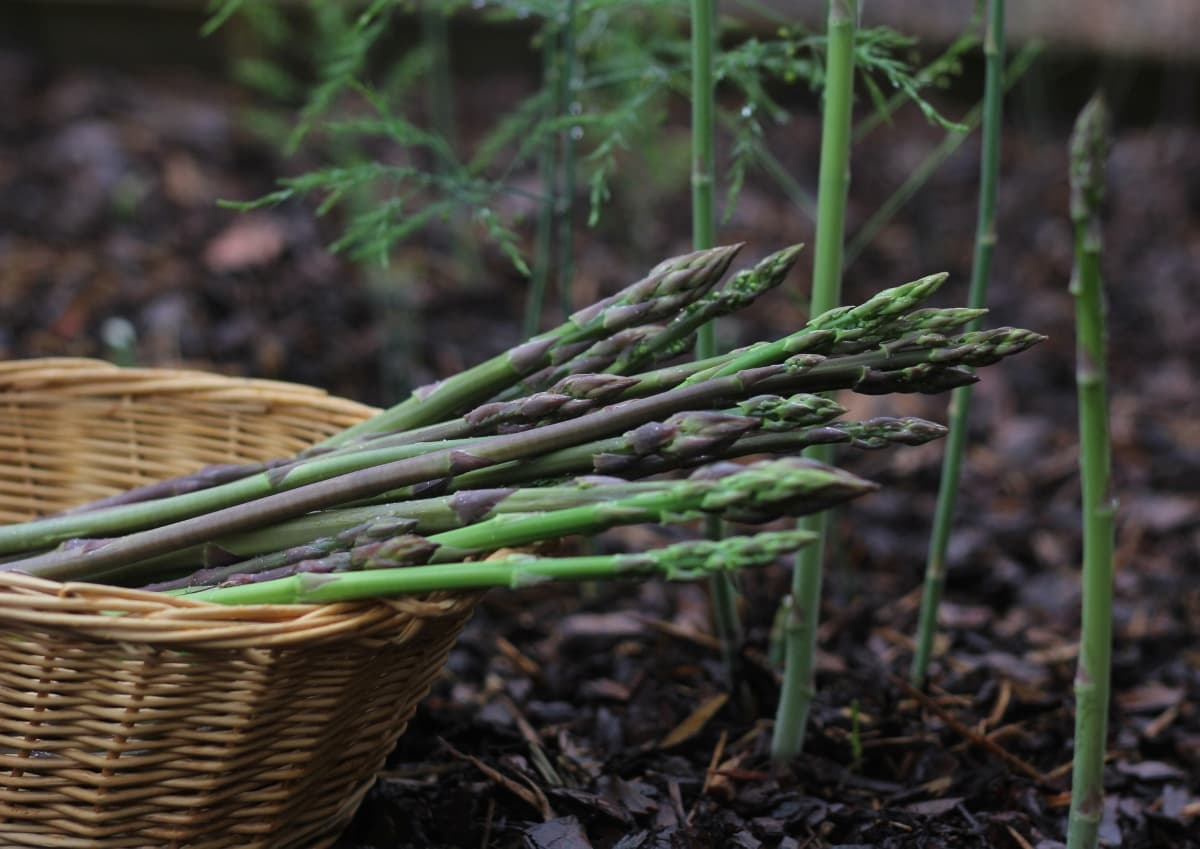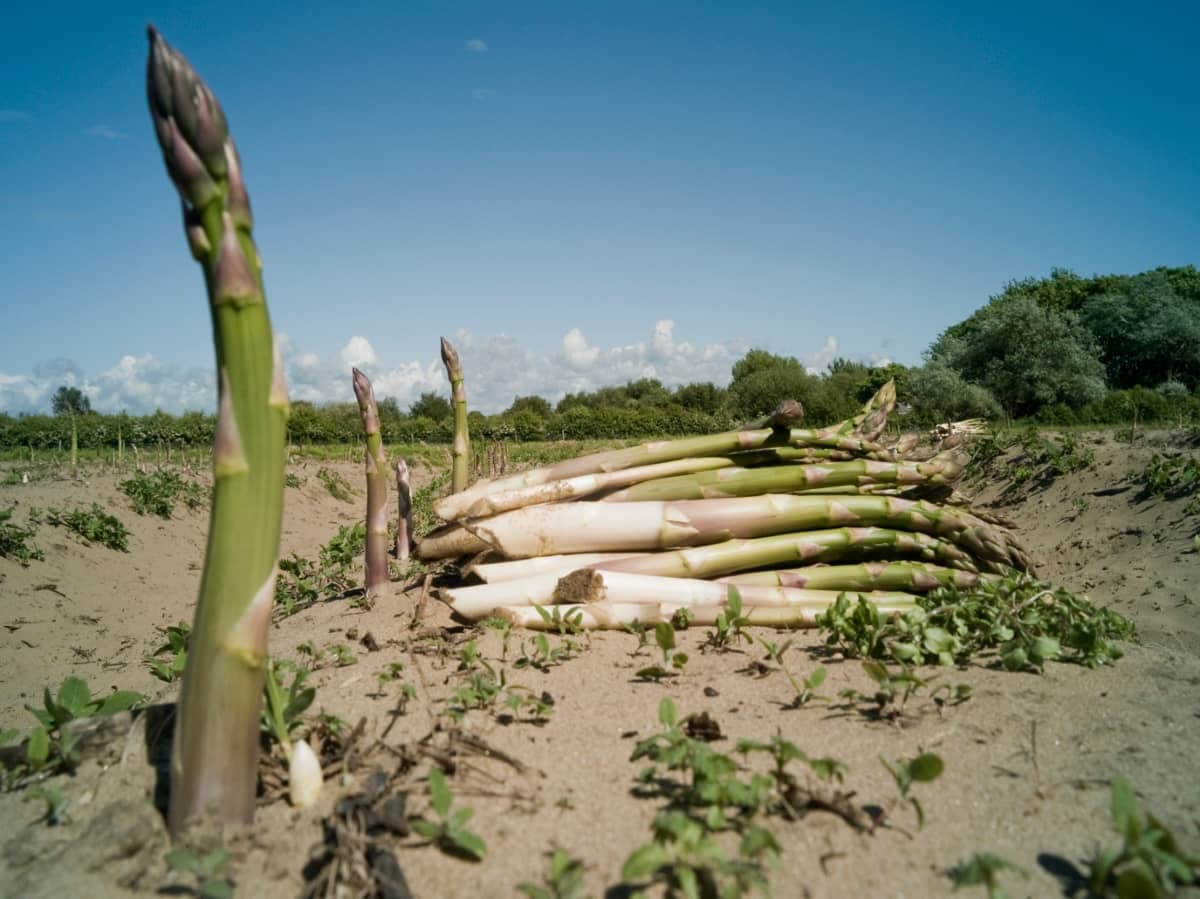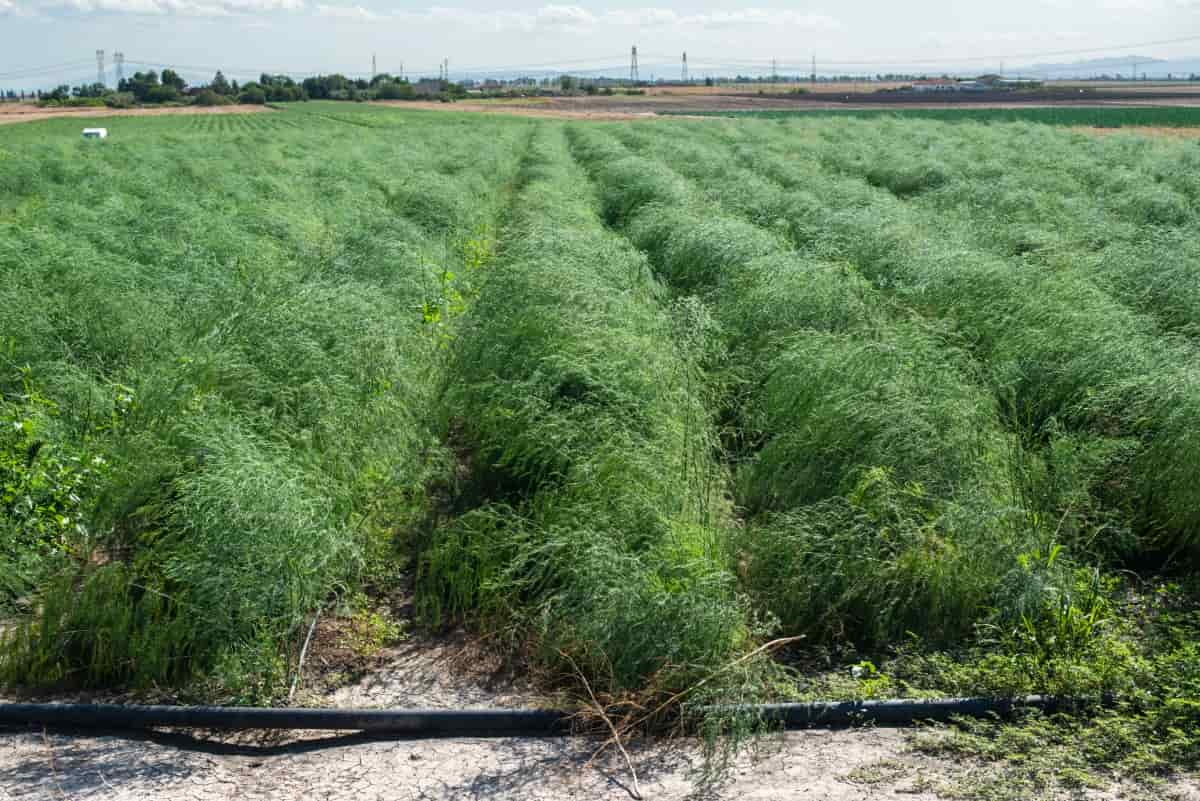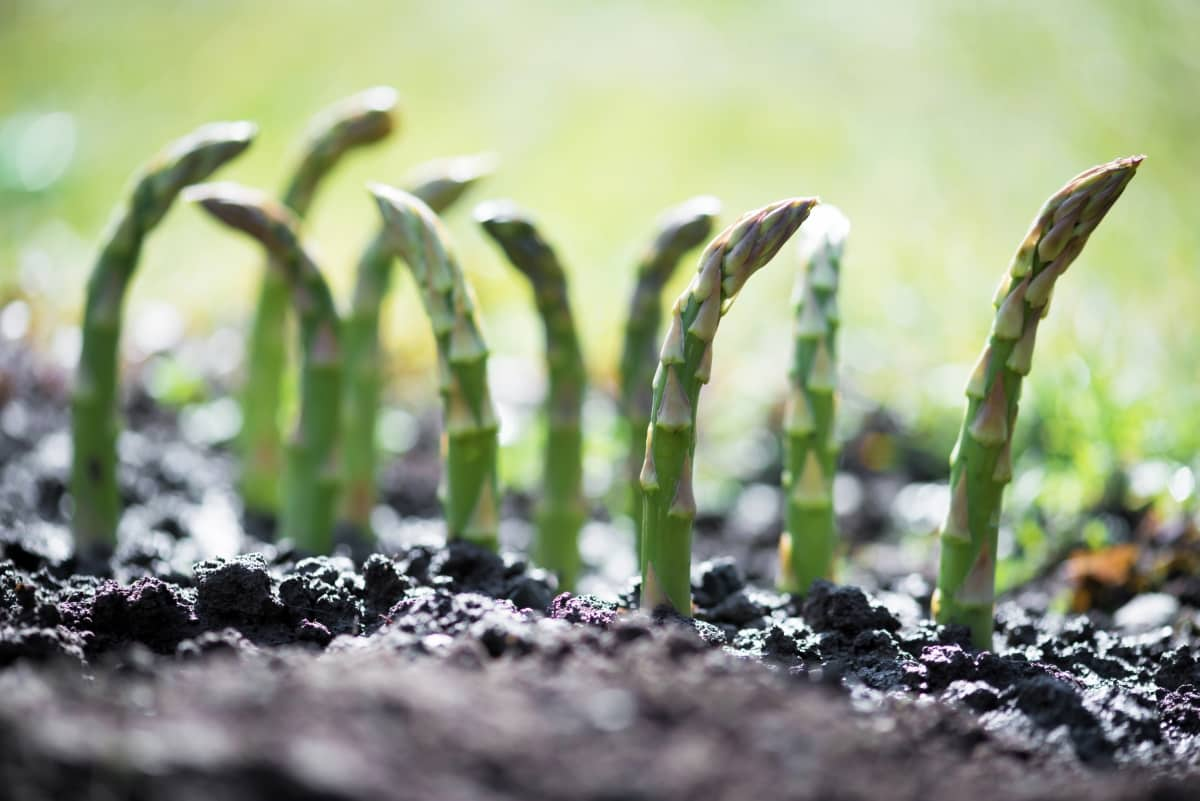Organic asparagus farming principles and practices are essential in the cultivation of asparagus, a perennial plant that requires specific climate conditions and care for optimal growth. Understanding the nuances of organic asparagus production, such as asparagus climate requirements and how asparagus grows, is fundamental in commercial asparagus farming.

The goal of these practices is to yield a high-quality crop sustainably, focusing on natural methods and minimizing environmental impact, thereby laying a solid foundation for all aspects of organic asparagus cultivation.
Organic Asparagus Farming
Choosing the Right Varieties for Organic Asparagus Farming
When it comes to organic asparagus farming, selecting the right varieties is crucial, as each variety has unique characteristics, including yield, flavor, and disease resistance. The selection of asparagus varieties necessitates a thoughtful and strategic approach, contingent upon their compatibility with the prevailing climatic and soil conditions in the specific geographical region.
This judicious choice holds paramount importance, as it exerts a substantial impact on the nuanced asparagus flavor profiles and distinctive attributes that the resultant crop will possess. The right variety selection is pivotal for ensuring a robust and productive asparagus harvest in organic farming settings.
Site Selection and Soil Preparation for Organic Asparagus Farming
Effective site selection and soil preparation are key to the success of organic asparagus farming. Ideal locations for asparagus cultivation have well-draining soil and sufficient sunlight. Preparing the soil involves adjusting pH levels and ensuring adequate fertility, essential factors in how asparagus grows.
Adding organic material to the soil is a crucial part of this procedure. It helps to establish a rich and nourishing environment that facilitates the vigorous development of asparagus roots. This means that when you introduce organic matter into the soil, you’re essentially creating a fertile and healthy space that’s conducive to the strong and healthy growth of asparagus roots.
Organic Pest and Disease Management in Asparagus Farming
Managing pests and diseases organically in asparagus farming is vital for maintaining a healthy crop. This management involves using natural, non-chemical methods for controlling pests and diseases, such as crop rotation, selecting disease-resistant varieties, and introducing biological control agents. These organic approaches are integral to preserving the quality and integrity of organic asparagus production, ensuring the crop remains free from harmful synthetic chemicals.
Weed Control Methods in Organic Asparagus Farming
Controlling weeds organically in asparagus farming is crucial, as weeds compete with asparagus for vital resources like nutrients, water, and light. Organic weed control methods include the use of mulches, hand weeding, and organic herbicides, all of which help maintain soil health and ensure that the asparagus plants have access to the necessary resources for optimal growth and development.
In case you missed it: How to Grow Asparagus Hydroponically: A Step-By-Step Guide

Organic Fertilization Techniques for Asparagus Cultivation
In organic asparagus cultivation, fertilization is essential for providing the plants with the necessary nutrients. Organic fertilization methods involve using natural fertilizers, such as compost, manure, and green manures, to enrich the soil. These organic materials not only supply essential nutrients to the asparagus plants but also enhance soil structure and fertility, contributing to the healthy and robust growth of the crop.
Irrigation Strategies for Organic Asparagus Production
Proper irrigation is critical in organic asparagus production, with adequate water being essential for the plant, especially during its growth season. Organic farming requires efficient irrigation strategies that balance water conservation with the need to provide sufficient moisture to the plants. In organic farming, we use methods such as drip irrigation and timing water based on soil and weather to help asparagus grow well and produce more.
Harvesting and Post-Harvest Handling of Organic Asparagus
Harvesting and post-harvest handling are critical stages in organic asparagus farming. The harvesting of asparagus should be done at the right time to ensure the best quality and flavor, typically when spears reach an appropriate height and before the heads open. Harvesting is often done by hand to maintain the integrity of the spears.
In case you missed it: 12 Common Problems With Asparagus Plants: Treatment and Solutions

Once harvested, immediate post-harvest handling is crucial to preserve the quality of the asparagus. This includes proper cleaning, cooling, and packaging, which are essential steps to extend the shelf life and maintain the freshness of the asparagus. Careful handling during these stages minimizes damage and deterioration, ensuring that the organic asparagus reaches the consumer in the best possible condition, thereby maintaining its nutritional value and taste.
Certification and Regulatory Considerations for Organic Asparagus Farming
Certification and regulatory considerations are significant aspects of organic asparagus farming. To label and sell asparagus as organic, farmers must adhere to specific standards and practices set by regulatory bodies. This means sticking to rules that say no to artificial fertilizers, pesticides, and genetically modified organisms (GMOs).
Obtaining organic certification requires a detailed application process, including thorough documentation of farming practices and periodic inspections by certified agents. These regulations ensure that organic asparagus farming maintains its integrity and adheres to the principles of organic agriculture, providing consumers with assurance about the quality and organic status of the produce they purchase.
Sustainable Practices and Environmental Benefits of Organic Asparagus Farming
Sustainable practices in organic asparagus farming bring numerous environmental benefits. Organic farming methods emphasize soil health, biodiversity, and ecological balance, reducing the environmental impact associated with conventional farming. Practices such as using organic fertilizers, crop rotation, and natural pest control methods help in conserving soil fertility and preventing soil erosion.
These practices also minimize water pollution and reduce the carbon footprint by avoiding synthetic chemicals. The emphasis on sustainability in organic asparagus farming not only benefits the environment but also supports the long-term viability of farming communities, contributing to a more sustainable and ecologically responsible form of agriculture.
In case you missed it: Asparagus Companion Plants: What and What Not to Grow with Asparagus

Conclusion
Organic asparagus farming represents a holistic and sustainable approach to agriculture that respects and nurtures the environment while producing high-quality, nutritious produce. From the careful selection of varieties to the meticulous practices of harvesting and post-harvest handling, each aspect of organic asparagus cultivation reflects a commitment to natural, eco-friendly methods. The stringent certification and regulatory processes ensure that the organic integrity of asparagus farming is maintained, offering consumers a trustworthy and healthy food choice.
Embracing sustainable practices, organic asparagus farming not only yields a valuable crop but also contributes positively to environmental health and the well-being of future generations. This farming method stands as a testament to the possibilities of combining agricultural productivity with ecological stewardship, setting a model for sustainable agriculture worldwide.
- Feed Your Flock for Less: Top 10 Tips to Save on Chicken Feed
- Ultimate Guide to Ossabaw Island Hog: Breeding, Raising, Diet, and Care
- Hatching Answers: The Top 10 Reasons Your Chickens Aren’t Laying Eggs
- Eggs and Economics: Breaking Down the Cost of Raising Backyard Chickens
- Defend Your Greens: Proven Methods to Keep Iguanas Out of Your Garden
- Ultimate Guide to Cinnamon Queen Chicken: A Comprehensive Guide for Beginners
- Ultimate Guide to California Tan Chicken: Breeding, Raising, Diet, Egg-Production and Care
- Ultimate Guide to Marsh Daisy Chicken: Breeding, Raising, Diet, and Care
- 10 Types of Chicken Farming Businesses You Can Start for Profits